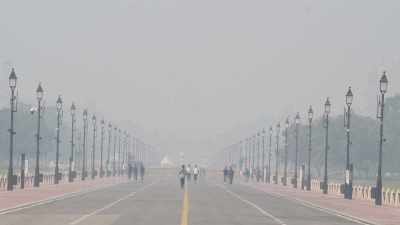Knowledge of JMM-Congress deal led to Soren secy’s murder: CBI
NEW DELHI, NOV 15: Knowledge of the alleged deal between Congress and JMM to save the Narasimha Rao government during July 1993 no-confidenc...

NEW DELHI, NOV 15: Knowledge of the alleged deal between Congress and JMM to save the Narasimha Rao government during July 1993 no-confidence motion and an act of sodomy led to the murder of Shashi Nath Jha, the then secretary to JMM MP Shibu Soren, CBI has claimed.
“Jha was aware of the illegal transactions and also expected, and demanded, a substantial share out of this amount from Soren,” CBI said in the chargesheet filed before Delhi Chief Metropolitan Magistrate (CMM) R K Gauba in the Jha murder case.
He was apprehensive of the threat to his life from Soren and his family members and had told his mother Priyambada Devi and brother Vijay Nath Jha about it, the agency said.
On May 20, 1994, three days before his “mysterious disappearance,” Jha had confided in a JMM activist that he had sodomised a relative of Soren, the CBI chargesheet claimed. This was known to every member of Soren family including his son Durga Soren, at present an MLA in Bihar assembly, and Jha was apprehensive of him, CBIsaid. “Jha had been putting pressures on Shibu Soren to get more financial favours in lieu of his knowledge of secrets and illegal financial dealings of Soren,” CBI alleged.
According to the chargesheet, between July 1993 and May 1994, Soren had shown financial favours to Jha which resulted in sudden change in the “style and status” of the latter. Soren had floated a partnership firm, Simex International, with the bribe money wherein Jha was made an equal partner along with Soren’s son, wife and chartered accountant Sushil Kumar, the investigating agency said.
The firm and its bank account were closed immediately after Jha disappeared in May, 1994. A close confidante of the the JMM MP from Dumka in Bihar, Jha was working as private secretary to Soren since 1980. He was handling Soren’s secret matters including the financial ones, the CBI chargesheet said.
Jha had also told several persons that he was expecting his share very soon from Soren of the money received by JMM leaders for saving theNarasimha Rao government, CBI said.
Between December 1993 and January 1994, some posters had come up all over Bokaro and other parts of Jharkhand area containing allegations regarding JMM pay-offs and details of bank accounts, where the said bribe money was deposited, it said. When these posters were shown to Soren, he was perturbed and said Jha must have leaked the information to Krishna Marandi, fellow JMM leader, CBI said.
Besides Soren, others named in the case are: Ashish Thakur, Sunil Khaware, Nand Kishore Mehta alias Nandu, Ajay Kumar Mehta alias Dilip and Pashupati Nath Mehta alias Posho and Shailendra Bhattacharya. Soren, Khaware and Thakur have been summoned to court on November 20.
Tickets booked by PMO/ Rly Minister: CBI
NEW DELHI: Railway tickets for Shashi Nath Jha, the then secretary to JMM MP Shibu Soren, and his abductors who allegedly took him to Bihar were “confirmed” against `headquarters quota’ either at the behest of the Railway Minister or Prime Minister’s Office, CBIhas said. “So many berths could have only been released to one group either by Minister of Railways himself or through PMO,” CBI claimed in its chargesheet in the Jha murder case.
According to CBI, Jha was abducted from Dhaula Kuan area of Delhi and taken to Ranchi in Bihar on May 23, 1994 where he was killed and his body buried at Piska Nagri. The printout of travel details of Howrah-Rajdhani Express revealed nine tickets bearing had been booked in fictitious names on May 21, 1994 for May 23 from New Delhi to Howrah, the CBI said. All these tickets, booked in fictitious names, were confirmed on May 23, 1994.
and the berths allotted were a2-10,13,14,15,16 and a1-37,38,39,40 the CBI chargesheet alleged. “It is very intriguing as to how so many berths were got confirmed against headquarters quota on two tickets in the peak season of May. Even the railway authorities are finding hard to explain this aspect,” the agency said.
However, this information could not be conclusively verified due tonon-availability of reservation slips as these records are kept by the railways for a period of six months only, CBI said.





- 01
- 02
- 03
- 04
- 05


























